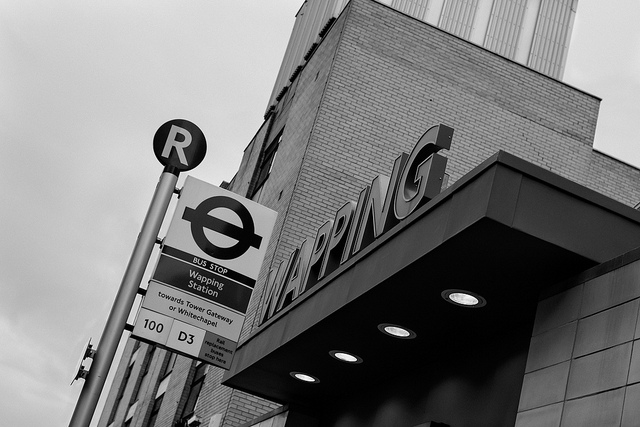It’s 2014 and we’re still implementing Leveson Inquiry recommendations
Former Sun Editor David Yelland commented recently that Leveson implementation had got ‘nowhere’. But between the howls of disapproval about newspapers’ failure to support a regulator on the Leveson model, campaigners such as Hacked Off have some causes for optimism in that they have won at least some of the key battles to reform press self-regulation. So, asks Damian Tambini, what is going on in the complex choreography of different stakeholders and how will this game of ‘media governance chess’ play out in 2014?
The Legal Reforms
Whilst the press dragged their feet, the Crime and Courts Act was passed back in April. This, effectively, was Parliament doing its bit to implement Leveson by setting up a legal framework that makes it risky for news providers to stay outside self-regulation, and giving some legal privileges to news publishers if they agree to play ball. As Inforrm’s editors put it: “relevant publishers who were not members of approved regulators faced adverse costs awards – win or lose” but – and here’s the catch “the provisions would only apply if a regulator had been recognised by a body established by Royal Charter”. The crucial section is chapter 22 part 2 (6): “This section does not apply until such time as a body is first recognised as an approved regulator.”
Two self-regulators
The newspapers have adopted an attitude of defiance: they have set up a regulator, but it is not one that meets the criteria set out by Leveson. According to the Media Standards Trust, their proposed Independent Press Standards Organisation satisfies only 12 of the 38 relevant Leveson recommendations, notably failing to convince that it is sufficiently independent of the industry.
In November, Impress, another self-regulator was set up to rival IPSO. The FT, The Independent andThe Guardian, who have been more lukewarm on the newspaper-led IPSO, could still form another breakaway group or join the Impress Project that is now supported by the influential Harold Evans.
Meanwhile, the Government is giving mixed messages. David Cameron, according to Fraser Nelson, argues that failure to implement will result in a less attractive deal for the press. But Cameron’s Culture Secretary Maria Miller seems to offer more of an olive branch to the editors, suggesting that they should develop IPSO into a more convincing body.
The next moves
The next move will be the setting up of the recognition panel, and, potentially, the application for recognition by IPSO, and/or another regulatory body. The following possibilities, and any combination of them are possible:
- IPSO edges towards Leveson. It is possible that the press could reform IPSO in order to show some willingness to meet the concerns raised by the Media Standards Trust and others. But the gap between the recognition criteria set out by Leveson and IPSO is large and there are not a lot of compromises being offered by the press.
- Impress or another regulatory body could receive support of significant news publishers and develop into a credible alternative to IPSO, which then applies for recognition. This is why the Impress project is interesting: if any body is recognised, then the cost provisions come into play, thus upping the pressure on the other newspapers to bid for recognition themselves. Stalling may be a dangerous option for IPSO.
- The Politicians shift the goalposts. Maria Miller appeared in a November interview to offer a compromise, encouraging the press to come up with another offer. But David Cameron’s conversation with The Spectator’s Fraser Nelson was reported widely over the holidays as a much tougher stance that stresses that the current deal is the only one on offer.
- The filibuster continues. Whether intentionally or not, the implementation of Leveson has already been delayed. The closer the 2015 elections, the more the power balance shifts to the editors and owners. They may be tempted to tough it out, even when the costs threat is a real one.
The ball currently is with the Commissioner for Public Appointments who will appoint a panel to appoint the recognition panel. Hacked Off report that he is being subjected to intensive lobbying and legal pressure from the newspaper industry.
The Endgame
Ultimately, a judge will have to make a call on whether an individual publication should benefit from protection from costs and exemplary damages. But the test case cannot take place until the relevant section of the Crime and Courts Act, which offers protection from the costs of legal actions, comes into force. Since this can only take place when a self-regulatory body is recognised, there is an opportunity for Impress or another organisation, to force the pace.
And although the exemplary damages provisions will come into force even later, these costs will not be insignificant. Some editors and journalists such as Fraser Nelson may be tempted to grandstand, but companies that are ultimately accountable to shareholders may be forced to weigh risks a little more prudently, and also take into account the wider climate of public opinion.
Whilst it is finely balanced, no frontbench politician, and least of all the Prime Minister, will want to go into an election year with nothing at all to show for the Inquiry. The total direct cost of the Leveson Inquiry was £5 442 400. This is likely to be a fraction of the total cost of the inquiry which heard evidence from 737 witnesses from government, media companies, the police and all sectors of society. Many witnesses had senior legal and PR advice and representation, much of the cost of which will have been borne by the public purse. And that leaves out the lost productivity caused as the Inquiry was streamed into homes and offices up and down the land.
I hope, when we look back at the Leveson Inquiry in 20 years it will not have been a waste of time. Whatever the outcome in terms of regulatory reform, an academic industry has been set up to pore over the evidence Leveson uncovered, asking what it reveals about the ways our democracy actually works. At the At LSE, a new project on the ‘Mediatization’ of government has been established.
A longer view: Are political economy and market structure what’s important
At its best, academic study of media and communication should encourage sensitivity about structures: not only does political economy (ownership, but also the long term decline of newspapers) matter, but so do the legal and institutional factors that constrain actors’ choices. It also should provide more of a ‘long view’ historical awareness about patterns and shifts in political economy and institutions. As Leveson himself put it, his inquiry should be put in the context not only of the phone hacking scandal this millennium, but of the Calcutt Reviews in the 1990s and a total of seven public inquiries since the first Royal Commission on the Press.
Media Ownership: The Issue for 2004?
From the start, commentators who focus on political economy identified media ownership as the more important issue, and it was one that politicians argued should be dealt with after the issue of regulation. With a report from the Lords Committee and the response to a government consultation expected in January, this issue is about to hot up. It will be made all the more interesting because the European Commission has finally commissioned a major study on the issue.
Leveson predicted that the ‘Megaphone’ of the press would make implementation tricky. But even he did not predict quite the mess that we are in.
—
Note: this post originally appeared on the LSE’s Media Policy Project blog. It represents the views of the author and not those of Democratic Audit or the LSE. Please read our comments policy before posting. The shortened URL for this post is: https://buff.ly/LizaAo
—
 Damian Tambini is Senior Lecturer at the London School of Economics and an Associate Fellow at the Institute for Public Policy Research, and at the Oxford Internet Institute.
Damian Tambini is Senior Lecturer at the London School of Economics and an Associate Fellow at the Institute for Public Policy Research, and at the Oxford Internet Institute.






 Democratic Audit's core funding is provided by the Joseph Rowntree Charitable Trust. Additional funding is provided by the London School of Economics.
Democratic Audit's core funding is provided by the Joseph Rowntree Charitable Trust. Additional funding is provided by the London School of Economics.
Damian Tambini says that It’s 2014 and we’re still implementing Leveson Inquiry recommendations https://t.co/4tHGkYHYRS
It’s 2014 and we’re still implementing Leveson Inquiry recommendations – by Damian Tambini https://t.co/r5h6jMcCbn
It’s 2014 and we’re still implementing Leveson Inquiry recommendations https://t.co/M0gtkh3TIP